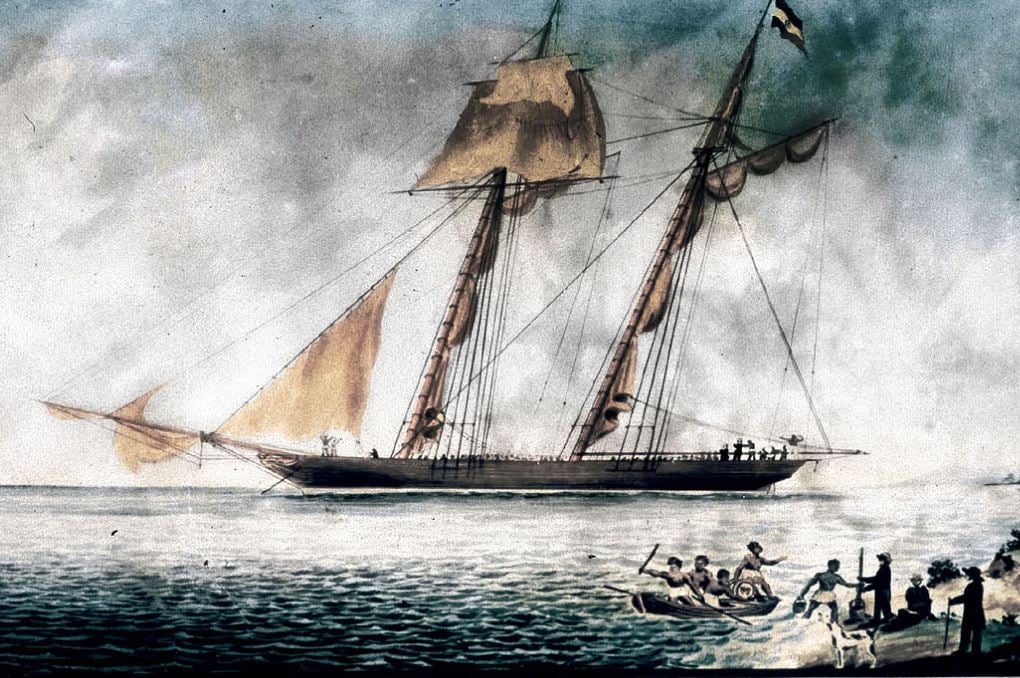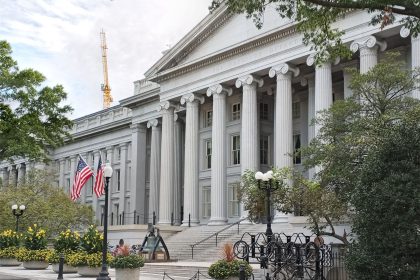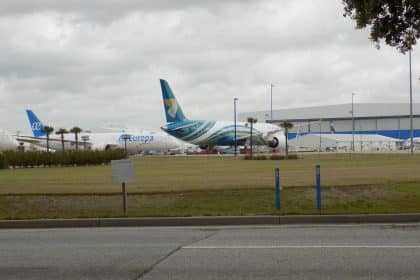Remains of Last Known Ship to Carry Slaves to US Found Near Mobile Bay

The remains of the schooner Clotilda, the last known vessel to carry enslaved African captives to the United States has been found near the mouth of a river that empties into Mobile Bay in Alabama.
Search Inc., a Florida-based archaeology and cultural resources management company, announced the find Wednesday, along with its partners, the Alabama Historical Commission and the Slaves Wrecks Project of the Smithsonian National Museum of African American History and Culture.
Financial support for the intensive yearlong scientific investigation was provided in part by the National Geographic Society.
“The discovery of the Clotilda is an extraordinary archaeological find,” said Lisa Demetropoulos Jones, executive director of the commission, in a written statement, adding the “voyage represented one of the darkest eras of modern history.”
“This new discovery brings the tragedy of slavery into focus while witnessing the triumph and resilience of the human spirit,” she said.
The estimated 110 captives who arrived in Alabama aboard Clotilda 1860 — more than 50 years after importing slaves was outlawed in the United States — were the last of approximately 12.5 million Africans who were shipped to the New World between 1525 and the end of the Civil War, according to the Trans-Atlantic Slave Trade Database.
The remains of the Clotilda were located not far from Africatown, a community established by the descendants of the vessel’s last passengers.
The irony of the discovery is that while the final resting place of the vessel was a mystery for 159 years, the captives brought to America aboard the Clotilda and their journey are among the most well-documented of the slavery era.
Many of the former slaves were interviewed after the war, and those who lived into the early 20th century were even filmed.
In addition, in the 2007 book “Dreams of Africa in Alabama,” author Sylviane Diouf writes extensively on the Clotilda’s voyage and aftermath.
In an interview, Diouf called it, “the best documented story of a slave voyage in the Western Hemisphere.”
The tale begins with Timothy Meager, a wealthy Mobile landowner allegedly betting several businessmen from the North that he could smuggle a cargo ship of African slaves into Alabama right under the nose of federal officials.
Despite the fact the importation of slaves into the United States had been illegal since 1808, Meaher was able to charter the Clotilda and persuade Captain William Foster to participate in the wager.
Foster set sail in February 1860 to a known West African slave port in what is now modern-day Benin, and reportedly purchased 110 men, women and children for $9,000 in gold.
Upon Foster’s return to Mobile Bay the following July, Meaher had the new arrivals transferred to a riverboat owned by his brother and then illicitly brought the Africans ashore for sale.
In the meantime, Foster moved the Clotilda a short distance up the Mobile River and burned the vessel to the waterline, leaving the remnants to sink and, he thought, forever hide his crime.
However, the story of Clotilda’s journey lived on among those the vessel carried to Alabama, and it was handed down from generation to generation.
The question was, would the ship itself ever be found. It wouldn’t be easy. Mobile Bay was and remains a regional center of maritime activity, and centuries of major shipwrecks have littered its bottom with debris.
At the same time, the surrounding delta is dotted with navigable rivers, streams and bayous.
It wasn’t until January 2018, that anyone claimed to have come close to finding remnants of the Clotilda, a claim that ultimately proved to be mistaken. A wreck was found, but it was the wrong wreck.
Still, the claim focused new attention on the Clotilda’s fate, and brought Dr. James Delgado and Search Inc. to the area to search for it. It also inspired the Alabama Historical Commission to assemble a larger team to help fund and participate in the search.
These partners included the Black Heritage Council, National Geographic Society, Smithsonian National Museum of African American History & Culture, the Slave Wrecks Project, Diving with a Purpose, and the National Park Service.
A detailed review of the remaining records from the late 1850s revealed the Clotilda was a custom-built vessel with a unique design — its atypical features including its 86-foot length — being a boon to anyone trying to identify it.
The investigators then set their sights on a promising location — a stretch of the Mobile River that had never been dredged.
The murky riverbed area proved to be thick with shipwrecks, many of which were easily discounted. One, however, tantalizingly matched every known detail of the Clotilda, and samples of the white oak and southern yellow pine retrieved from the bottom showed signs of having been burned.
After a year of study, including forensic analysis in Search Inc. and National Geographic’s laboratories, consulting with other experts, exhaustive archival research into original documents, the scientific research concluded the wreck is likely Clotilda.
“The resulting report of findings was sent to an international panel of renowned maritime archaeologists for peer review to ensure the data met the highest standards of scientific research in the field,” said Eric Sipes, Senior Archaeologist with the State of Alabama.
While no nameplate or ship bell etched with the word “Clotilda” has been found, the investigators said this week that is beyond a reasonable doubt that they’ve found the right vessel.
“We are cautious about placing names on shipwrecks that no longer bear a name or something like a bell with the ship’s name on it,” maritime archaeologist James Delgado said in a statement. “But the physical and forensic evidence powerfully suggests that this is Clotilda.”
The investigators also said their conclusions were independently reviewed and agreed upon by international authorities.
The question now is what to do with the Clotilda.
The commission said it is coordinating with the governor’s office, law enforcement and the Department of Conservation to keep the site protected.
Residents of Africatown, who have seen their numbers decline for years, hope the discovery of the Clotilda’s remains will revive its story and generate tourism, bringing new businesses and new jobs to the area.
There’s also been talk of raising and displaying the vessel. The community was recently awarded nearly $3.6 million from the BP Deepwater Horizon legal settlement to rebuild a visitor center destroyed in 2005 by Hurricane Katrina.
But archeologists who have viewed the remains of the Clotilda say it is in very poor condition. Restoring it in any meaningful way would alone cost many millions of dollars, they’ve said.
Another possibility that’s been mentioned informally would be creating a water memorial, something like the memorial that stands above the U.S.S. Arizona in Pearl Harbor.
Under the federal mandate set forth in the Abandoned Shipwrecks Act of 1999, the Alabama Historical Commission, the State Historic Preservation Office of Alabama, is charged with the management and guardianship of maritime archaeological sites abandoned and embedded in Alabama waters.
Now that the preponderance of evidence makes a clear statement as to the likelihood of the ship’s identity, the historical commission has shifted its focus to the protection of the asset.
“The mission of the Alabama Historical Commission is to protect, preserve and interpret Alabama’s historic resources. We are working diligently with state and local agencies to secure site protections,” said Major General (Ret.) Walter Givhan, Chair of the Alabama Historical Commission.
“The State of Alabama holds this artifact as an irreplaceable cultural treasure and will prosecute any tampering or encroachment to the fullest extent of the law. With the confirmation of this discovery, the responsibility to preserve it only increases, and the Alabama Historical Commission will continue to assess security needs and the most effective way to meet them,” Givhan said.
“Additional archaeological research will help us to learn more details about the story of the Clotilda and its survivors,” remarked Stacye Hathorne, State Archaeologist of Alabama. “It is important to preserve the site so that additional research may be conducted and the story may emerge.”























